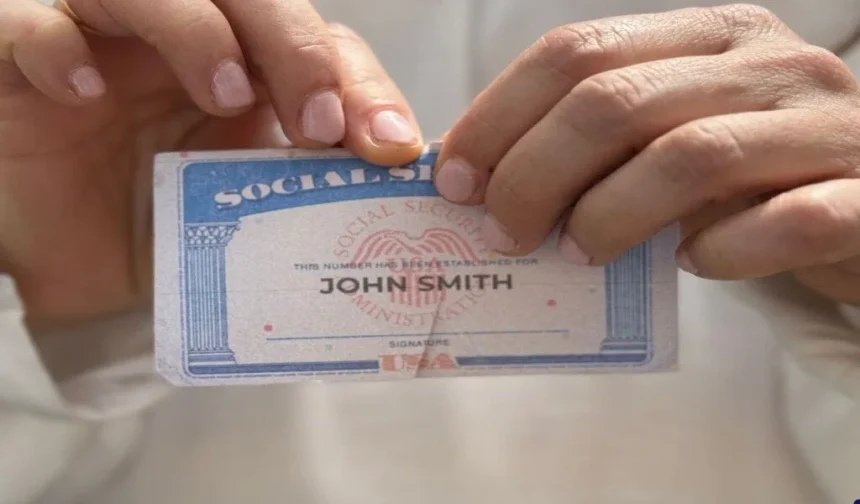(CTN News) – In the United States, the Social Security payment schedule is typically adhered to with precision.
Beginning in May 2025, thousands of claimants may have their monthly payments withdrawn, not because of administrative faults, but owing to certain circumstances that abruptly terminate their eligibility for these benefits.
While not all seniors are impacted by this type of situation, it is essential to comprehend the conditions that may lead to a permanent cessation of Social Security benefits.
Individuals affected are sometimes caught unawares by these alterations, rendering them financially vulnerable for an extended duration.
Programs like Supplemental Security Income (SSI) and the Supplemental Nutrition Assistance Program (SNAP) may assist those who have lost their Social Security payments in fulfilling certain financial commitments. To prevent prolonged periods without remuneration, initiate prompt measures.
What reasons could compel Social Security to cease collecting payments?
Social Security disbursements, applicable to retirement or incapacity, are accessible if specific criteria are satisfied. The Social Security Administration (SSA) can stop benefits if particular conditions alter.
A retired or disabled individual may forgo their right to receive monthly payments for several reasons, including the following:
The addressee has passed away. Upon the death of a recipient, their Social Security payments cease immediately. The family must promptly inform the Social Security Administration.
Securing disability benefits through employment initiation. The Social Security Administration (SSA) have the jurisdiction to ascertain that the medical criteria are no longer satisfied and to terminate Disability Insurance (SSDI) payments if a beneficiary consistently resumes employment and exceeds the permissible earnings thresholds.
Upon obtaining my Social Security Disability Insurance, I will be eligible to retire at the full retirement age. In this scenario, you will continue to receive benefits, but they will be classified as a retirement pension instead of a disability payment. Nevertheless, despite this substantial modification, it remains in effect.
Departing the United States of America to establish residency there. Certain benefits, such as Social Security, necessitate an individual’s presence in the United States. Exceeding 30 days abroad may jeopardize your advantages.
a modification of an individual’s financial or marital condition. Individuals who depend on others, such as spouses or offspring, are likely to gain the most from this event. If their financial circumstances alter due to their marriage, they jeopardize their eligibility for the settlement.
Each month, the Social Security Administration (SSA) verifies that beneficiaries continue to meet the eligibility criteria. Consequently, any alterations in an individual’s financial or personal circumstances must be promptly conveyed to others.
Social Security benefits may qualify you for SNAP, SSI, and other programs.
A Social Security beneficiary who misses a monthly payment may still have options available. Nonetheless, some state or federally administered programs may provide financial support, contingent upon the particulars of each individual’s circumstances:
Supplemental Security Income (SSI) is a financial assistance program for low-income individuals with restricted resources. Eligibility for Supplemental Security Income (SSI) is determined by financial need rather than employment history. In 2025, the maximum potential compensation will be $1,450 for couples and $967 for individuals.
If the loss of your Social Security check has led to a substantial reduction in your income, you may qualify for food assistance via the Supplemental Nutrition Assistance Program (SNAP).
Each state is required to establish its own thresholds and allocations, notwithstanding that a significant percentage of the elderly and disabled can engage in this program without jeopardizing other benefits.
Alternative choices comprise Medicaid and complimentary medical services. Ceasing to receive Social Security income may result in the loss of Medicare eligibility. In this instance, services such as Medicaid may assist in alleviating the costs of medical care.
During emergencies, some states offer state emergency programs that deliver one-time financial assistance or support for rent, utilities, or prescription medication expenses. Contacting your local social services department is a prudent decision.
There are methods to persist in obtaining government assistance, despite the substantial financial impact of losing Social Security income. Promptly seek assistance from a specialist and notify the appropriate authorities regarding the alterations in your situation.
SOURCE: TD
SEE ALSO:
Musk’s Focus on Tesla Pleased Investors, But Brand Damage Shook Them.
American Airlines Lowers Its 2025 Projection Because of Trump Tariffs.
The Costco Find for $11 I Purchase Once a Week and Use it Daily.

Salman Ahmad is known for his significant contributions to esteemed publications like the Times of India and the Express Tribune. Salman has carved a niche as a freelance journalist, combining thorough research with engaging reporting.














